#Amitav Ghosh Gun Island
Text
The age of ‘climate fiction’: how Indian novels and cinema have spotlighted stark realities with more nuance than the West
In Janice Pariat’s latest novel, Shai’s story begins with a declaration — “to go back to where I came from — the wettest place on Earth”. The protagonist of Everything the Light Touches(2022) wrestles with the limitations of what she knows about her hometown and the community she belongs to.
Take the metal underneath her feet: a flaming supernova produced uranium some six billion years ago. But…
View On WordPress
#age of ‘climate fiction’#Amitav Ghosh Gun Island#Amitav Ghosh’s The Living Mountain #author of Latitudes of Longing#climate change in india#climate fiction cli fi#climate fiction Saumya Kalia#climate films#climate novels#Indian climate fiction#Indian climate stories#Shubhangi Swarup#Tamil film ‘Kadaisi Vivasayi’ (2022)#The Arbit Documentation of an Amphibian Hunt#weather and climate change
1 note
·
View note
Note
hii there! you may have moved away, but as someone who really wants to study at the uni of edinburgh, i’m wondering — what’s it like there, did you enjoy it? i’m also a tumblr user, and want to study eng/hist, so your blog has been so interesting to look at:D
hiya! i still live here (and will be living in edinburgh indefinitely :) )
life at the university is kind of wild right now, I won't lie lmao. There's a lot going on politically within the uni at the moment, with gender liberation (especially trans rights, which sucks for me as a trans person), cost of living, a housing crisis and calls for the president of the university to step down due to raising tuition costs/underpaying staff/overcrowding courses and classrooms while simultaneously making about £43,000 more than he made last year (A HELL OF A LOT AND ALSO WAY TOO MUCH) while everyone else suffers. There is also a major class divide, but there's a society founded to combat that and a lot of resources for people from lower incomes (like myself) which are helpful. Timetabling and assessment feedback also suck but honestly the previously mentioned stuff is far worse.
But on more positive notes:
The social aspect of university is amazing. Even if you don't find clubbing to be your thing, there's plenty to do with societies and you'll meet people on your course quickly in your tutorials and if they're decent people you'll likely become quick friends. Memberships for societies range from £3-£10 for most, but some do exceed (if they expectedly need more money to run (ie. sports societies), and most host at least 1 activity a week (usually at 4 or 6-ish PM).
During freshers' there's a ton of things to do both in and out of the uni as well. Societies will host multiple events a week; taster sessions, tryouts, tours, etc. If you're into clubbing, then clubs also have student special events for the week. St James Shopping Centre also hosted a student-only shopping night which was....... an event.
As for classes, as I mentioned timetabling is often quite shit (I have 6hrs straight of classes on a friday...), but the classes themselves are pretty much everything you would expect from a university level class. People sit and type away (which will gradually decrease over the semesters....) and no one talks to each other (which will also change). I'm assuming you want to do English Literature and not English Language? It is called Literary Studies in first year, and I am doing it as an elective right now. I 2nd year you can choose to do English or Scottish Literature (or both). In the first semester, you will write 2 essays: one on a poem and another on a scene from a piece of drama. Most likely you will pick from these plays:
A Doll's House
Macbeth
It's True, It's True, It's True
Content warnings are given by the lecturers before a lecture is to be held, and accommodations are given if need be.
In semester 2 the focus is on prose, so novels, short stories, etc. We are studying:
The Private Memoirs and Confessions of A Justified Sinner (my fav <3)
Freshwater by Akwaeke Emezi
Gun Island by Amitav Ghosh
Silas Marner by George Eliott
Beloved by Toni Morrison
Again, content warnings are given and accommodations made if needed. There's still 2 essays, but one is on an except and another is a short dissertation comparing 2 of the novels.
As for the city itself, it is fucking gorgeous. It is so easily walkable, and even if you don't want to/can't walk far, the busses are fantastic and can get you anywhere in about 20 minutes max. Holyrood park is gorgeous, especially at the summit of Arthur's seat. The majority of the architecture is Victorian and older (dating back as far as the 13th century, I believe? Idk im not a historian) which gives the whole city, especially Old Town, a certain charm. There's plenty of "aesthetic" spots, coffee shops, photo ops, etc. Plenty of crows abound for that extra gothic factor. If you want to see a lot of greenery other than Holyrood park then I'm afraid you will have to move quite far out -- it is a very compact city. There's a lot of museums and artsy places, too. Something for everyone! My only complaint is the amount of construction going on at the minute, but I understand it is completely necessary to maintain the old and fragile architecture. I would like to be able to see over North Bridge and walk down George IV Bridge undisturbed tho :/
Other random bits of info:
If you want a job, apply in November (December latest)
STAY AWAY FROM HIVE AT ALL COSTS
Flat searching is far too stressful, but start doing it early.
(Or you could apply to the Student Housing Co-op.... but you didn't hear that from me... (im gatekeeping))
Pollock Halls is very culty. Just learn how to cook and go to literally anywhere else
Except Kincaid's if you don't like clubbing
Baristo's coffee is the cheapest of all the on-campus cafes
Most of your classes will be in either 50 or 40 George Square. They like to trick you into thinking they're 2 separate buildings but they are actually connected by a downstairs study space/cafe
You will not find a seat in the Library past 11AM. Best find somewhere else to go early on in the year
Get Lidl plus on your phone
There will often be times you wished you had a camera on you. Learn to be in the moment and appreciate it there and then instead
So far though, I am enjoying myself. However, I am procrastinating 2 essays and should have been studying these past 3 hours but it's so fine :):):)
2 notes
·
View notes
Note
do you have any book recs *hands you the mic*
oh godddd im so bad at finishing books i should read before i gotta read for class. BUT from what ive read so far of these i love:
the seven moons of maali almeida by shehan karunatilaka
im waiting for you and other short stories by kim bo young
the golem and the jinni by helene wecker
people of the book by geraldine brooks
the jasmine throne by tasha suri
interpreter of maladies by jhumpa lahiri
other books on my shelf that i must read:
fiction:
light from uncommon stars by ryka aoki
the overstory by richard powers
the house of the spirits by isabel allende
iraq + 100
gun island by amitav ghosh
bestiary by k ming chang
the death of vivek oji by akwaeke emezi
nonfiction:
the stonewall reader
rebellious mourning by cindy milstein
let this radicalize you by kelly hayes and mariame kaba
freedom is a constant struggle by angela davis
the intersectional environmentalist by leah thomas
from a to x by john berger
#UM i can rec poetry too but ya this is like my v long priority list head in my fucking hands#oh and i rec a few graphic novels too#and as always SUPPORT YOUR LOCAL/NONLOCAL LITERARY MAGAZINESSSSSSSSSSSSSS#my life lately is just staring at my eyelids while i oversleep. mentally ill
6 notes
·
View notes
Text
tortle’s 2022 reads
a prayer for owen meany by john irving - ●●●●○
the midnight library by matt haig - ●●●○○
the europeans by henry james - ●●○○○
conversations with friends by sally rooney - ●●●●○
purple hibiscus by chimamanda ngozi adichie - ●●●●●
before the coffee gets cold by toshikazu kawagushi - ●●○○○
das brot der frühen jahre by heinrich böll - ●●●●○
the night circus by erin morgenstern - ●●●●●
normal people by sally rooney (RR) - ●●●●○
the hobbit by j.r.r. tolkien - ●●●○○
my brilliant friend by elena ferrante - ●●●●○
the color purple by alice walker - ●●●○○
to the lighthouse by virginia woolf - ●●●●○
nachtzug nach lissabon by pascal mercier - ●●●●●
cold enough for snow by jessica au - ●●●○○
behind the scences at the museum by kate atkinson - ●●●●○
circe by madelline miller - ●●●●○
about a boy by nick hornby - ●●●●●
middlesex by jeffrey eugenides - ●●●●●
where the crawdads sing by delia owens - ●●●●○
an abundance of katherines by john green (RR) - ●●●●○
crooked kingdom by leigh bardugo - ●●●●○
on earth we're briefly gorgeous by ocean vuong - ●●●●●
das buch eines sommers by bas kast - ●●○○○
swing time by zadie smith - ●●●●●
die herrenaustatterin by mariana leky - ●●●●○
high fidelity by nick hornby - ●●●●○
the marriage plot by jeffrey eugenides - ●●●●○
tonio kröger / mario und der zauberer by thomas mann - ●●○○○
great expectations by charles dickens - ●●●○○
im westen nichts neues by erich maria remarque - ●●●●○
doktor murkes gesammeltes schweigen (und andere satiren) by heinrich böll - ●●●○○
dune by frank herbert - ●●●●○
the book thief by markus zusak (RR) - ●●●●●
gun island by amitav ghosh - ●●●●○
beautiful world, where are you by sally rooney - ●●●●●
girl, woman, other by bernadine evaristo - ●●●●●
#this is 37!#hoping to read 50 next year#please feel free to ask/dm me about any of them for a more detailed opinion#reading log#tortle reads#bookblr
7 notes
·
View notes
Text
my year in reading | 2020
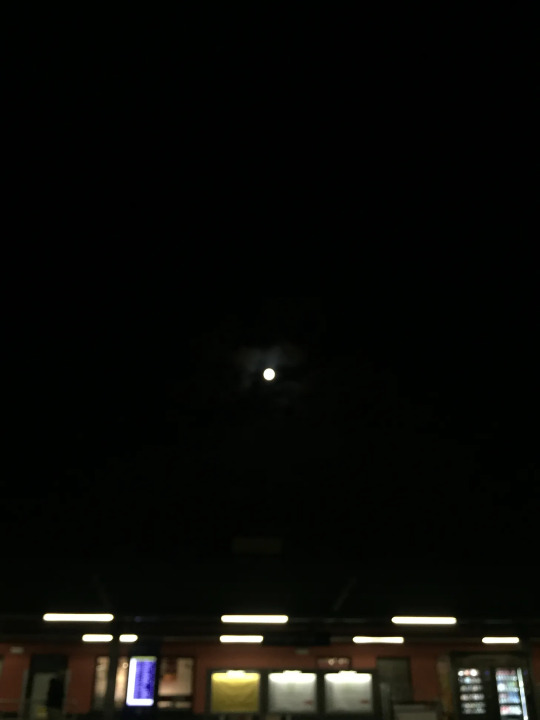
Marking the passing of the years has a mystical and at the same time mundane quality to me. But time is passing and to reflect upon this linearity we all are bound to does always seem more magical than anything. So, as every year, I am embracing the turning of the years and look forward to a fresh start.
The end of an old year and the beginning of a new one is always an exciting time for someone as keen on semiotics and symbolism as I am. A thin membrane, much as on Halloween, that allows us to pass through to new endeavours, if we wish to see it that way.
And I do. I don’t scoff at New Year’s Resolutions and while I know that one can resolve to change and integrate new habits at any time of the year, any Tuesday in March or Saturday in June, this brief liminal space between two years is a magical one. Anything we ascribe value to automatically becomes valuable, as it is with birthdays, full moons or anniversaries of any kind.
I would rather be someone to see the magic in these things and give them meaning beyond that which is considered “real”, “plausible”, or “rational”, than turn away and let a moment that could be something special slip away unnoticed, without giving it the chance to attach itself to something.
January began atop the Himalayan mountains for me this year, freezing down to the bone in a tent. I did carry a book with me on this trip - The Snow Leopard, quite fittingly - though I did not turn one single page (difficult in 3 pairs of gloves) and have not finished it since. So, as has been my custom these past years, I began 2020 with The Secret History, a book that could never disappoint, unlike The Starless Sea by Erin Morgenstern, that I had eagerly awaited for more than a year. You win and you lose sometimes.
In February I succumbed to reading two quite popular crime novels - The Woman in the Window and The Girl on the Train - the latter of which was a gift from an Indian friend. Sadly, I wasn’t overly excited about either of them - maybe I have outgrown crime fiction for now? I also read and loved, as always, the fifth book in Seanan McGuire’s Wayward Children series - Come Tumbling Down.
My reading month was otherwise also filled with classics such as Animal Farm, The Turn of the Screw and In Cold Blood (I have apparently not lost any interest in true crime fiction), and I also watched the Greta Gerwig adaptation of Little Women twice at the cinema. But February also saw me returning to Germany, leaving my time in India behind, prompting me to read Vivek Shanbagh’s Ghachar Ghochar and Amitav’s Ghosh Gun Island immediately upon my return.
Gun Island especially was a magical book, in some ways reminiscent of A.S. Byatt’s Possession and I absolutely adored it. I listened to Ann Patchett’s The Dutch House while sorting through all my belongings, freshly picked up from Mainz, and I quite enjoyed it. The story itself maybe not so much as the impression left behind by the tangible aliveness of the house itself. With Faber and Faber, finally, I got a sneak preview of the rather unknown Celia Fremlin and her Ghostly Stories, of which I definitely need to read more.
March was the month that would dictate the beginning of the rest of the year, when the first lockdown came upon us. R came back from India, and we managed to see each other before boarders closed. And my cousin A came to stay with us for two weeks from Milan - which would turn into almost 3 months.
Most of the month I spent ploughing through Why We Sleep by Matthew Walker, a truly eye-opening exploration and a gloriously interesting study. Luckily my sleep patterns are already quite healthy but I feel like this book could turn some people’s minds around. I also read Jane Austen’s Emma (amazingly fun and vibrant!) and continued my slow but steady reading of Agatha Christie’s collection with 4:50 from Paddington.
“April is the cruellest month,” as T. S. Eliot teaches us, and fittingly, I read the horrifying A Little Life by Hanya Yanagihara, a touching but troublesome book that had me cry a little on the balcony. I also finished three more Agatha Christie novels and started a virtual bookclub with J and C for which I read Dear Mr. M by Herman Koch and Les Fiancés de l’Hiver by Claire Dabos, which I truly loved.
In May I began tutoring, visited R in Leuven and read two disappointments: The Wych Elm by Tana French and The Bass Rock by Evie Wyld.
Even another true crime read in June, His Bloody Project, did not convince me, whereas Anita Brookner’s Look At Me sparked memories of Shirley Jackson and was thoroughly enjoyed. I listened to Frederik Bakman’s Bear Town and Us Against You at breathtaking speed, while embroidering a sweater - my best handiwork project yet. I also finished A.S. Byatt’s beautiful The Children’s Book - a magical tale, and stunningly written. A left me in June, and I missed her companionship dearly.
I worked a lot in July, and finally visited C and J ! Embroidering and just simply seeing each other again. I finished Gillespie and I, which turned out to be different to what I imagined - delightful ! I was disappointed in July by The Essex Serpent, reread A Little Princess, Die Unendliche Geschichte and Digital Minimalism.
I continued with my reading of Austen with Sense and Sensibility and listened to the wonderful The Fellowship of the Ring, which made work hours so much sweeter. Finally, I finished off the month with the final Austen - Mansfield Park, which I loved.
In August, the month of my birth, I finished The Lord of the Rings trilogy once more as well as Mythos by Stephen Fry. But more importantly, August called for freedom from working, finding an apartment in Maastricht and seeing H and J in Berlin to celebrate my birthday - with books of course.
September was a quiet reading month, what with settling in the house, at uni and making new friends. I got a sewing machine, went to Munich for an India reunion and revelled in the beautiful autumn days in the city.
I still read Bunny, The House Without Windows and Hex, amongst various reads for uni. Dinners on the balcony and an exorbitant amount of Federweißer with my roommates rounded off the month, despite the low book count.
The month of Halloween, October, called for a sixth reread of The Secret History, a New Zealand read of The Rehearsal, as well as Rest and be Thankful (disappointing somehow) and The Supper Club (surprisingly delightful). I sewed and knitted and did presentations and wrote paper proposals. I also fell up the stairs and hurt my ankle pretty badly.
The most vivid memory I have of November is that of our silent dinner. I also read two more Agatha Christies, reread Daphne DuMaurier’s classic Rebecca and Ali Smith’s Artful, and loved Public Library, also by Smith. I got tested for Corona (negatively!), began Ashtanga yoga and finished Crossing the Water - a brilliant poetry collection of Sylvia Plath.
December began with a classic, Bonjour Tristesse, and culminated with My Best Friend’s Exorcism, as well as The Stranger Beside Me. Both books I had been meaning to read for years and they exceeded my expectations. Uni stressed me slightly, pending holidays as well and as lockdown 2.0 was announced my reading brain switched itself off.
Christmas was still a joy, with the family (minus Oma) coming together, R. visiting briefly and many a book under the Christmas tree. I started reading Susan Sontag’s journals - but I will carry their brilliance into the New Year. I finished off the year sewing costumes for our medieval-plague themed NYE, J and me celebrating together, since Covid plagued us once more and prevented C from coming. But we will enter the New Year singing Total Eclipse of the Heart as always and I take with me all the positive energy I have been carrying with me for a while now.
This is also the first year that I won’t achieve my reading goal - which I set at 80 books for 2020. Instead I am finishing with a still solid 67. Overall, despite all that has been going on in the world, I cannot complain about my 2020. But let’s still hope for the best (and prepare for the worst).

1 note
·
View note
Quote
The fact was that novels had done for me exactly what critics had anticipated when 'romances' first began to circulate widely, in the eighteenth century: they had created dreams and desires that were unsettling in the exact sense that they were the instruments of my uprooting.
Gun Island, Amitav Ghosh
71 notes
·
View notes
Photo
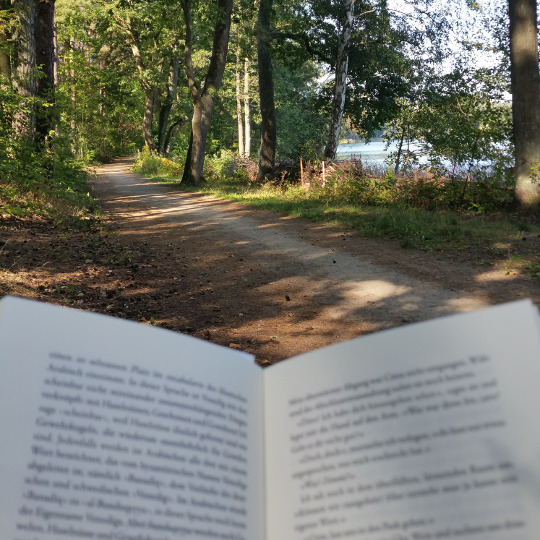
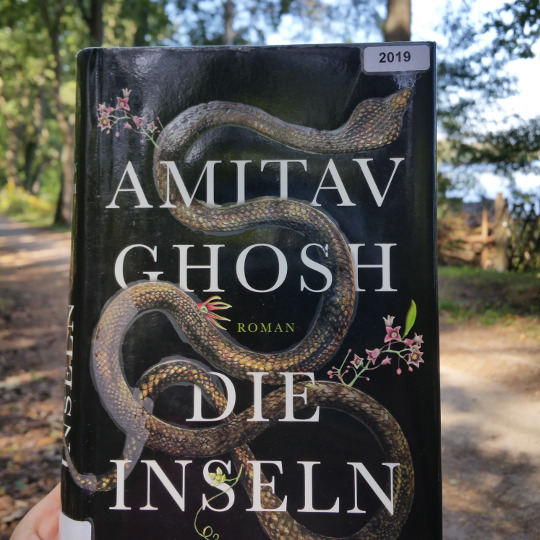
reading “Gun Island” by Amitav Ghosh outside
3 notes
·
View notes
Text
2020 Book Reviews
I just thought I’d do quick reviews of the books I read this year, because in 2020, I read the most books for fun since my high school days! I categorized by new books, books I reread, and unfinished books.
And if your situation allows for it, and you’re interested in any of these books, I encourage you to purchase from local bookstores and/or support your local libraries, instead of buying from large corporate vendors like Amazon!
New Books I Read
Homegoing by Yaa Gyasi — historical fiction
Homegoing is a sprawling, multigenerational story of two diverging branches of a single family—one branch remains in Africa, while the other branch is enslaved and brought to the United States via the Trans-Atlantic slave trade. It’s such an emotional and intimate look at family, heritage, and history. Every vignette about both families leaves such a deep impression, and the ending left me in tears. 10/10 Highly recommend, my favorite book I read this year.
Parable of a Sower by Octavia E. Butler — dystopian/science fiction
Parable of a Sower follows a young African-American girl as she tries to find meaning and purpose in a future dystopian, 2020s (oof) America rife with anarchy, violence, social inequality, and racism. What really impressed me with this book was how relevant its commentary was to the current state of the US—I got through the entire book thinking it had been written in last few years, only to find out it was published almost 30 years ago in 1993. While I thought the plot was a little weaker in the last third or so, it’s an incredibly unflinching and raw story about people and society, and it really left me thinking by the end.
The Martian Chronicles by Ray Bradbury — science fiction
The Martian Chronicles is a collection of loosely connected short stories about the colonization of Mars by humans, featuring themes of colonialism, racism, anti-war sentiment, censorship, and more. I’ve always been a huge fan of Ray Bradbury, and I’m glad I got the time to read more of his short stories. His writing style is so imaginative, surreal, and at times even unsettling, and the social commentary, while it may seem a little basic to some considering it was published in 1950, is nonetheless still relevant and poignant.
The Last Samurai by Helen Dewitt — fiction
Not to be confused with the 2003 movie starring Tom Cruise (though this book is arguably just as bad in a completely different way), The Last Samurai tells the story of a genius mother and her equally genius and precocious son, stuck in the rhythm of mundane society. I think the book has interesting and things to say about how we as a society discourage ourselves from achieving our full potential by seeing some things as beyond our innate ability to learn, and how we squash down those with extraordinary or atypical abilities and favor utilitarian learning over “learning for the sake of learning”. However, the message is couched in such a pretentious and experimental writing style that made me want to rip my eyes out, and I really couldn’t help but feel that the author must have a highly self-inflated view of herself. Can’t believe it was so well reviewed, but then again, it appeals to a brand of intellectualism that reviewers probably love to eat up.
Gun Island by Amitav Ghosh — fiction
Gun Island ties together modern events with Bengali myths and legends through the eyes of an Indian-American academic, covering topics like environmentalism and refugee/migrant crises. While the summary sounded promising, I thought it was actually a very clumsily written book, laden with painfully heavy-handed symbolism, stock characters, and obvious plot contrivances. A lot of things happened and not very much was said. I spent an hour roasting this book with my friends over Trader Joe’s snacks.
Books I Reread This Year
His Dark Materials trilogy by Phillip Pullman — fantasy
I hadn’t read this series since I was a kid (and at the time, most of the religious themes went completely over my head), so it was a cool experience to read these books again with older and more knowledgeable eyes. Though I think some of the characterization isn’t as fleshed out as I hoped, I still think it’s a wonderfully imaginative and magical world that tackles daring themes about the nature of religion and humanity.
Ahsoka by E.K. Johnston —fantasy/sci-fi
I revisited this book after The Clone Wars finale, and phewww it’s even sadder with full context. While the prose can be a little bare at times, I think Johnston really nails down Ahsoka’s character as the lost, hurt, and traumatized teenaged girl that she is after Order 66, but reminds us of the steely grit and heroism that makes up the core of Ahsoka. Out of the few SW books I’ve read, I think it remains my favorite. DLF, please hire EK to write more Ahsoka books!!!
In-Progress Books
Dune by Frank Herbert - science fiction
Dune is an epic sci-fi story following young Paul Atreides as he navigates life on the desert planet Arrakis in the middle of a massive interstellar political feud. So far, I really like the depth of Dune’s world and the themes of environmentalism, colonization, politics, and exploitation that it’s setting up. I wish the character writing was stronger though, as I’m roughly halfway through and still feel zero emotional connection to Paul.
The Immortal Life of Henrietta Lacks by Rebecca Skloot - non-fiction
The Immortal Life of Henrietta Lacks tells the narrative of Henrietta Lacks and her family, as well as the ethical and moral controversy surrounding her treatment by the medical and scientific community. Lacks was a Black woman treated at Johns Hopkins for cervical cancer, whose cancer cells were sampled and collected without her consent or knowledge in 1951. Lacks died from cancer, but her cells lived on as the HeLa cell line, the first human immortal cell line that has become a crucial staple of biomedical research, playing a significant role in discoveries like the polio and HPV vaccines. While I’ve read quite a bit about her before in news articles, I was excited to finally read the book, and so far it doesn’t disappoint.
To-Read List (for 2021??)
Minor Feelings by Cathy Park Hong
The Tradition by Jericho Brown
The Emperor of All Maladies by Siddhartha Mukherjee
idk.... maybe some star wars books too lmao
10 notes
·
View notes
Text
was tagged by @jayseung to answer some questions, so here we go!!!! thanks for the tag joy ♡♡
5 songs you’ve had on repeat:
round and round - sf9
violet! - waterparks
i know i love you - txt
bye bye bye - wei
love race - machine gun kelly ft. kellin quinn
last movie:
shazam (it’s one of my feel-good movies and i rewatched it recently :D)
currently watching:
loki
hsmtmts
roswell, new mexico
currently reading:
gun island by amitav ghosh for uni
the hobbit by j.r.r. tolkien for myself
tagging @incorrect-pentagon, @seungssik, and, since we started talking recently, @dongkwan. as always, this isn’t obligatory, feel free to ignore this if you don’t wanna do it!!!
2 notes
·
View notes
Quote
You mustn’t underestimate the power of stories. There is something in them that is elemental and inexplicable. Haven’t you heard it said that what makes us human, what separates us from animals, is the faculty of storytelling? But what if the truth were even stranger? What if it were the other way around? What if the faculty of storytelling were not specifically human but rather the last remnant of our animal selves?
Amitav Ghosh, Gun Island
80 notes
·
View notes
Photo
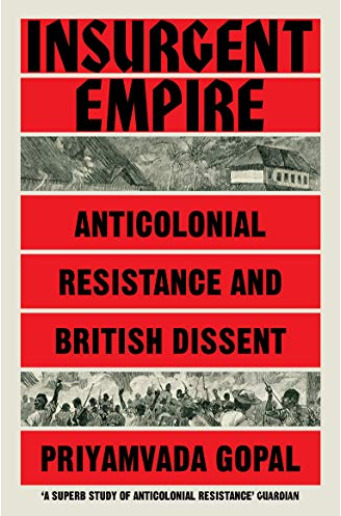

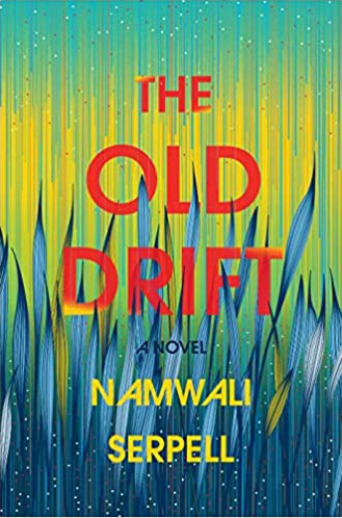
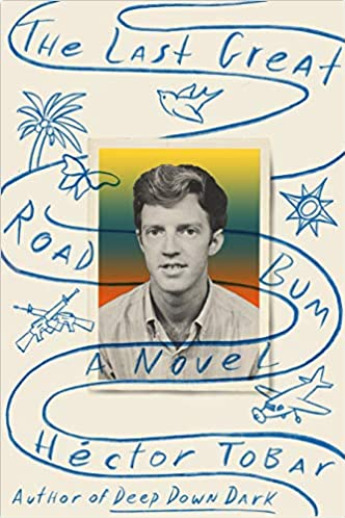
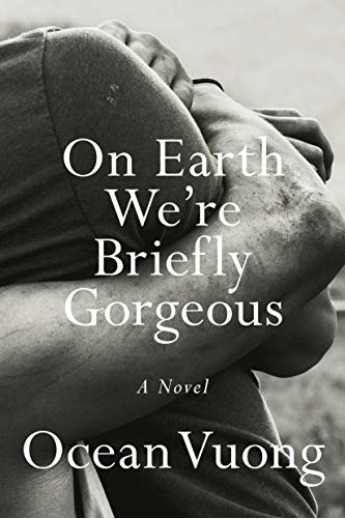
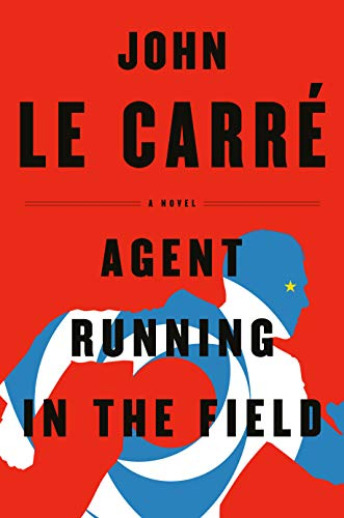
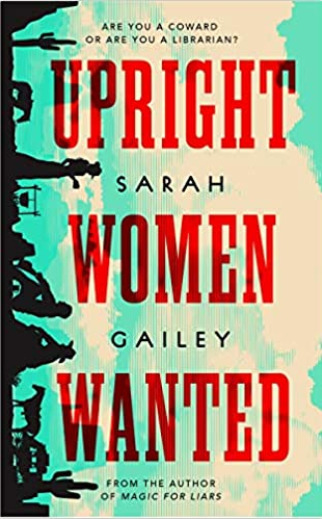
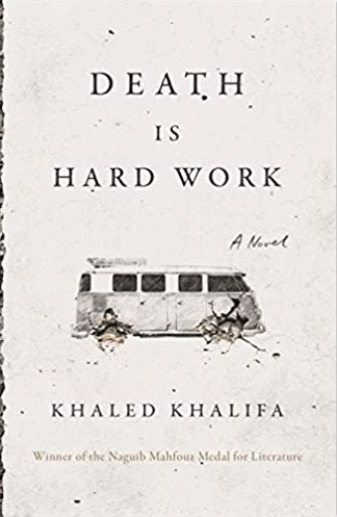
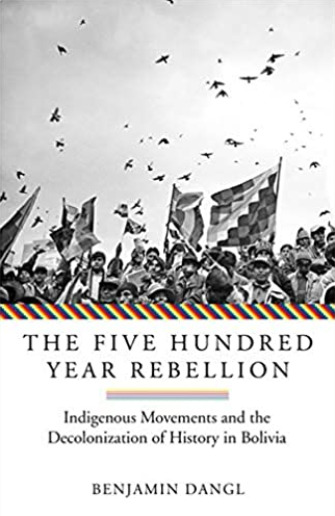
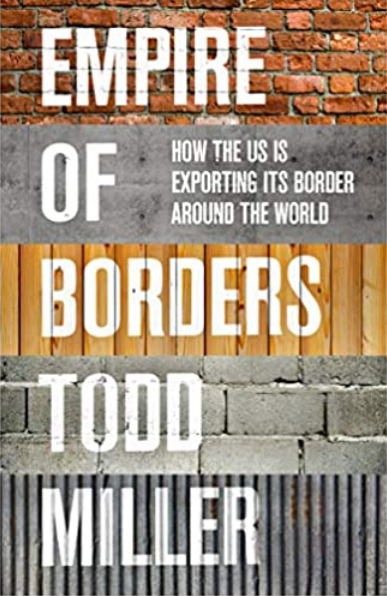
10 books (released/being released in 2020) that I want to read in 2020. Tagged by @tobermoriansass, thanks! To be perfectly honest I am not that great about keeping up with what’s new in the publishing world, I just sort of sprawl around following my interests down deep rabbit holes and being delighted when I discover that an author I know and like is releasing something new. Also, as Jo says, I have a backlog. So a lot of these are really from 2019.
List in text for accessibility: Insurgent Empire - Priyamvada Gopal, Gun Island - Amitav Ghosh, The Old Drift - Namwali Serpell, The Last Great Road Bum - Héctor Tobar, On Earth We’re Briefly Gorgeous - Ocean Vuong, Agent Running In The Field - John le Carré, Upright Women Wanted - Sarah Gailey, Death Is Hard Work - Khaled Khalifa, The Five Hundred Year Rebellion - Benjamin Dangl, and Empire of Borders - Todd Miller.
I am shy about tagging people but absolutely anyone who wants to do this is invited to please do so!
#if i'm lucky i'll get to half of these my list is horrendously long#and contains many other books that are not on this list but i have good intentions and will probably get to them all EVENTUALLY#maybe. i hope.#to read#reading tag#ask box#my posts
4 notes
·
View notes
Text
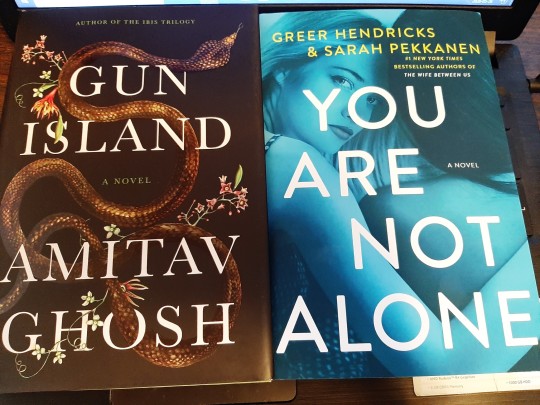
The Books I Got in May
Gun Island by Amitav Ghosh
A 2019 publication, Gun Island is a the latest book by Ghosh.
It is about a rare book dealer travels from Brooklyn to his birthplace Kolkata.
I have wanted to read it for over a year.
You Are Not Alone by Greer Hendricks & Sarah Pekkanen
An average woman who gets caught up in the lives of the glamorous Moore sisters. They are after more than what they appear.
There is not much of a description on the book, but I know it is a thriller.
After reading so many backlist titles, I will actually get to read a book published in 2020.
1 note
·
View note
Text
All the books I read in 2019, reviewed in 2 sentences or less.
The annual tradition returns! These are all the books I read in the last year, and how I felt about them in two sentences or less.
Blue Mars - Kim Stanley Robinson: This was the final book of the science fiction trilogy that exploded my brain at the end of 2018, and the after-shocks lasted well into 2019. These books capture something essential about the relationship between place and politics that you can only do with science fiction.
Bark - Lorrie Moore: A thoroughly uneven book of short stories - when they were good, they were great, when they were bad, they were bumbling takes on the domestic side of the war on terror.
Farewell to Arms - Ernest Hemingway: Maybe it's just my mood in the forsaken year of 2019, but I just have no tolerance any more for works of art that aestheticize the degradation of the human spirit. This book made me feel near constant disgust.
Mrs. Dalloway - Virginia Woolf: In contrast, I think you can create works of art that dignify people even in their darkest moments, and offer a bridge into the experience of others that can be a passage into becoming a better person. It's always nice to read a book for a second time and realize you can keep reading it again for years to come.
The Asshole Survival Guide - Robert I. Sutton: We all have assholes that we have to work with, and sometimes it's necessary to have some external validation that it's not all your fault, and that establishing distance between yourself and said assholes is a good idea.
My Invented Country - Isabelle Allende: It took me until the very end of this book to realize there was a different memoir by Allende that I meant to read instead. This one was not so great.
Catch-22 - Joseph Heller: Gonzo literary comfort food.
The Golem and the Jinni - Helene Wecker: I found this book charming enough, but it never totally wowed me at any particular point. I think it showed that the concept of two magical creatures from different cultural contexts meeting in turn of the century New York is an interesting thought experiment, but a struggle to land as a full narrative.
Kafka on the Shore - Haruki Murakami: Prior to this, the only Murakami I had read was What I Talk About When I Talk About Running, and it's safe to say that did not properly prepare me for the surreal darkness of Kafka on the Shore, which seems to never stop going deeper into the abyss.
God Save Texas - Lawrence Wright: There are very few books about modern Texas that don't try to valorize it, or douse it with excessive nostalgia, and this is one of them. A politically-astute, funny meander through the state as it is, not as it might have once been, or never was.
M Train - Patti Smith: Patti Smith is obviously a genius, but this one didn't leave a great mark on me. Worth revisiting some other time, I think, since it's my girlfriend's favorite book.
Working - Robert Caro: I am shamefully still putting off my years-old plan to read Robert Caro's LBJ series, and finish his book on Robert Moses. In the meantime, this is a thoughtful reflection on how and why to tell stories about power.
Feel Free - Zadie Smith: I love Zadie Smith, and if you haven't read her non-fiction essays, you are missing out on some of her most exciting and moving writing. This is her second collection of essays, and you can tell how much the decade since the first has taken its toll - so many more of the pieces are about fear and frustrations, and the language is much wearier, even while it is still penetrating and beautiful.
The Telling - Ursula K. Le Guin: A slim, late novel from one of the best to ever do it, this book projects the sense of engrossing calm that reminds me most of all of listening to a story well-told - not incidentally, an experience that is a key theme of the plot itself.
Stories of Your Life and Others - Ted Chiang: On the other hand, the short stories in this book all came off as one note thought experiments that failed to build compelling worlds.
The Overstory - Richard Powers: Not just my favorite book of the year, but also one of my favorite ever, The Overstory is the book I talked the most about, and told the most people to read in 2019. The best way to explain it ('it's a book about people who become obsessed with trees') really undersells things, because it's also about forest ecology, generations of trauma, the terror and clarity of radical thought, and a soul-splitting vision of hope. It receives the coveted 3rd sentence in the review, because I just need to emphasize again that you should read this book.
The Flamethrowers - Rachel Kushner: Maybe it was the fate of any book that I read after The Overstory, but The Flamethrowers left me feeling cold. It wandered off into too many fanciful-seeming plot arcs that didn't develop all the characters to the depth they needed.
What is Populism? - Jan-Werner Müller: I re-read this book because I wanted to revisit his ideas about the strengths and weaknesses of populists ahead of the next election, and whether there is ever a version of populism suitable for the left agenda. I finished worried, and skeptical, respectively, on those two points.
The Great Derangement - Amitav Ghosh: I don't read many books about climate change - I find there are very few things that I really feel like need saying in the face of the obvious and overwhelming - but I'm glad I made time for this one, which focuses on both the global north-south dynamics of the issue, and the inability of storytelling to capture the problem in full. It's profoundly difficult to sum up in two sentences, but it's worth a full read.
There, There - Tommy Orange: I think this novel asks too much of characters that are too thin to hold what they are made to bear. Too busy at the same time as it's too ordered to be fully credible.
The Slynx - Tatyana Tolstaya: I somehow convinced myself that I had read this surreal post-apocalyptic novel set in Russia 100 years after nuclear winter, but not only had I not read it, I haven't read anything like it before. A wide-ranging nightmare about authority, literacy, and the power of fear, set in its own vernacular and kaleidoscopic distortions of our authoritarian world today.
The Iliad - Homer: I wanted to re-read The Iliad because I find the idea of a hero felled by a single, discrete flaw to be a fascinating allegory, not realizing that Achilles' fatal flaw is not his heel but his anger.
Ecology of a Cracker Childhood - Janisse Ray: There isn't much widely-read nature writing about the US South, and I think Janisse Ray's book dignifies and mourns the overlooked parts of the country that may not be wilderness but still contain bits of natural grace.
Sundiver and Startide Rising - David Brin: These two novels follow the same premise of humanity entering a universe of intelligent life as the only species to reach consciousness without patronage of, and servitude to, an elder species, and the power struggle that ensues. Sadly, the premise writes a check the execution can't cash, and while the first book, leaner and more focused, is solid, the second is over-long and distracted from what made the first fascinating.
Lonesome Dove - Larry McMurtry: It took a lifetime of seeing this book (a signed first edition, from an Austin bookstore that has left no digital trace) on my parents' shelf to finally read Lonesome Dove, and it was a fitting welcome back to Texas. McMurtry's characters are fully-grown from the beginning, made of both broad archetypes and fine detail, and the narrative gives them the journey they deserve.
The Goldfinch - Donna Tartt: There are very few novels that convey big ideas in balance with pot-boiler plotting, but this is one of them and my only regret is not reading it sooner. How dare anyone blight this novel with a terrible movie.
The Left Hand of Darkness - Ursula K. Le Guin: What makes this book special is not that it's speculative fiction about a world with unique gender arrangements; that's been done before by many other authors. What makes it special is that it investigates that world with tenderness towards its inhabitants, and an understanding of how gender weaves its way into institutions besides the family or the bedroom
Gun Island - Amitav Ghosh: I had high hopes for Gun Island, but felt it never quite rose above being a thought experiment carrying out his ideas from The Great Derangement.
The Love Affairs of Nathaniel P - Adelle Waldman: Your opinion of this book will probably hinge on how important you think it is to read books about writers in Brooklyn hanging out with other writers in Brooklyn. If you think that's still a useful world to explore, you will like that this book is merciless towards its characters, and startlingly accurate - but if you don't think that's important, you will be frustrated for the same reasons.
How to Get Filthy Rich in Rising Asia - Mohsin Hamid: A gloriously rich experimentation in genre and contemporary global politics - playful, infuriating, and heartwarming, really everything you could hope for from a short novel. This is the second book by Hamid that I've read, and I'm going to set out to read all of them as soon as I can.
6 notes
·
View notes
Quote
Fact is outrunning fiction.
| Amitav Ghosh, commenting on how he’s incoporated climate change into his 12th book, Gun Island.
4 notes
·
View notes
Quote
Every human being has a right to a fantasy, don't they? It is one of the most important human rights -- it is what makes us different from animals.
Gun Island, Amitav Ghosh
43 notes
·
View notes
Text
Review: “Gun Island” by Amitav Ghosh
This is one of those books that needs to rest before you fully grasp its magnitude.
Spanning from India to Venice, this novel weaves on old local Indian myth into a global history of displacement, migration, otherness and survival in places that are not home. Really cleverly done, you want to pay attention from the very beginning as the novel draws you in even without you knowing where it is going. Hold on to about the midpoint, where the main themes will be much clearer!
It is not only expats and business people, as well as migrants and refugees (the successful as well as the journeys filled with hardship, those accepted and those shunned and attacked) - so, humans traveling internationally - it is also stories, as shown on the example of the central myth, that transcend borders and are symbolic of a global connectedness and shared experiences across nations, languages, and cultures.
There is a bundle of interesting and divers characters in here, though I wished we would have gotten to know them a bit more in depth. Also, this is not a Dan Brown novel in which the central problem is deciphering the myth. That is one element of it, but it soon drifts into the background, as the jumping off point for a lot of the other themes.
Another aspect, re: globally connected, is climate change, especially the effects that has on local wildlife. This is also where the magical realism comes in, which I am still unsure about. Maybe it was good and rounded everything out, made it a bit more like the myth it is centered around; but maybe it was overdone and cheesy, fairytale-like. In any case, it does not ruin anything, it is just a slight point of irritation.
1 note
·
View note